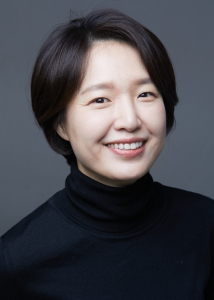SMART CITY
SMART INNOVATION
WEBZINE2023 Vol.06, No.1Featured
New Faculty - Prof. Soh Young In
-
• Ph.D. in Civil and Environmental Engineering, Stanford University
-
• M.A. in International Policy Studies, Stanford University
-
• B.A. in Economics and Statistics, Columbia University
-
- Soh Young In joined KAIST in February 2023 as an Assistant Professor of Civil and Environmental Engineering. Prof. In studies the sustainable transition with a specific focus on energy infrastructure development and finance, climate risks analysis, asset valuation under climate scenarios, and sustainability reporting and disclosure. Prof. In completed her Ph.D. in Civil and Environmental Engineering at Stanford University. She holds her M.A. in International Policy Studies from Stanford and B.A. in Economics and Statistics from Columbia University. Before joining KAIST, Prof. In led financial innovation research at the Precourt Institute for Energy (part of the Stanford Doerr School of Sustainability). She also worked as the Research Director of Sustainable Finance at the Stanford Center at the Incheon Global Campus in Korea. Along with her academic career, Prof. In worked as a global infrastructure development banker at the Korea Development Bank (KDB) and an independent consultant to the United Nations Development Programme (UNDP), Green Climate Fund (GCF), and Boston Consulting Group (BCG). Prof. In’s research is on catalyzing transitions toward a low-carbon and climate-resilient system through integrating technology, finance, and policy innovation. In particular, she is interested in exploring these subjects in infrastructure (e.g., energy, transportation, and cities) assets because rapidly growing climate risks significantly affect their valuation. The recent discussions of “stranded assets” show this concern, for instance. Yet, asset owners and managers have failed to fully address the complexity of climate risks nor the “material” impacts due to those climate risks. Hence, her research develops and applies a framework to create and capture the financial and economic impacts of climate change and a low-carbon transition on infrastructure assets, investment portfolios, and economic systems. Prof. In’s research has been globally recognized. She won a research award from the United Nations Environment Programme Finance Initiative (UNEP FI) and the U.S. Clean Energy Education and Empowerment (C3E) Award from the U.S. Department of Energy (US DOE). These recognitions highlight her academic rigor as well as the strong impact of her research. Indeed, her research supports various stakeholders (i.e., owners and managers of infrastructure assets, investors, and policymakers) to drive positive social and environmental impact alongside financial results. Prof. In has a profound global research network and has worked closely with public and private sectors, including, but not limited to, the US DOE, Google, S&P Global, Bank of America, and the Bank of Korea. At KAIST, Prof. In is launching her new lab, called “Sustainable Transition and Integration Lab,” which highlights her interdisciplinary research leveraging models, data, and tools from engineering, economics, and finance. Three main research pillars of the lab include (1) climate-related risk analysis, (2) sustainability integration, and (3) data-driven energy system transition and integration. Prof. In aims to expand her innovative and multidisciplinary collaboration to build a viable pathway to net zero carbon emissions.



